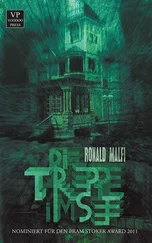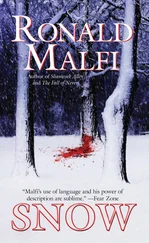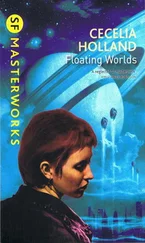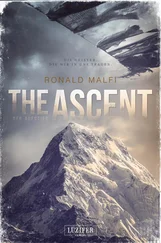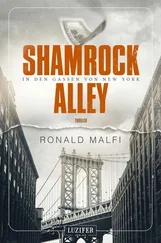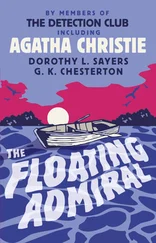Him, I thought. Elijah Dentman.
“How’s noon strike you?” It was as if Earl’s voice were coming from the moon.
“Fine.”
“Hey! Terrific! I’ll see you then, Mr. Glasgow.”
“Good-bye,” I mumbled and hung up.
My palms were tacky with sweat, and that awful taste was back in my mouth. Slowly, I closed the distance between the kitchen and the living room. With each step I took, the shape of the child behind the curtains—the child I knew to be Elijah Dentman or whatever remained of him in this world—took on the shape of the holly bushes outside, pressed up against the windowpanes and shaking in the wind. Once I reached the curtains, I did not have to sweep them aside to see that I had mistaken these bushes for the ghost of a lost child. Their horned leaves scraped against the glass like grinding teeth.
I bent down and put my hand over the floor vent that was beneath the curtains, covering the expulsion of cold air that was streaming through the vent. The curtains stopped moving. I held my breath. A second later, a stiff, crinkling sound emanated from somewhere behind me. I turned my head and saw one of my notebook pages flutter and ripple. The page didn’t actually turn, but it looked like it wanted to.
I called out Elijah’s name and waited.
There was no response.
Something else turned over inside me, and I called out Kyle’s name. Louder this time. I was confused. For a moment, I thought I was a child again, thirteen or fourteen, back in my parents’ house in Eastport, lost and confused in the middle of the night. But no—I was here, an adult in his home. There were no ghosts. There were no dead boys, no dead brothers.
Five minutes later, after putting on a pair of work boots and an overcoat, I grabbed an unopened bottle of pinot noir, then trudged out into the snow. The wind was biting, and the snow was still coming down as I hiked up the hill toward the Steins’ house. Beyond the trees I could see a banner of charcoal smoke rising from the stone chimney, listing like a thin tree in the northerly winds. I climbed the porch and thumped frozen knuckles against the solid oak door. I thought I heard lilting orchestral music from inside the house.
To my left, a sweep of velvet curtains parted in the window, then fell back into place. A moment later, Ira Stein answered the door. “Mr. Glasgow,” he said, no doubt surprised to find me standing on his porch. He was dressed in a pair of pressed slacks and a zipper-fronted sweater the color of sawdust. He smiled somewhat disarmingly behind the too-thick lenses of his spectacles. “A bit nasty to be out for a walk, isn’t it?”
“I felt a bit awkward when we met at my brother’s Christmas party. I wanted to bring you this.” I gave him the bottle of wine.
“Well, thank you. I hope I didn’t stir up anything that evening.”
Whoa, boy, you’ve got no idea, I thought and had to fight back a maniacal laugh. “Not at all. I mean, I didn’t know what happened to the Dentman kid, but Adam told me. It’s okay. No harm done.”
“Please come in.” Ira stood aside, holding the door open for me.
I stomped the snow from my boots, stepped inside, and Ira shut the door behind me.
The place was a museum. There were enormous lithographs of old Roman buildings, Mediterranean grottoes, seagoing vessels, and countless European landscapes housed in expensive brass frames on the walls. All the furniture looked pristine and undisturbed, like photos from a catalogue. The Oriental carpet was as thick as a mattress, resistant to the impression of shoes when walked across. I took in the stone hearth where a fire burned and the display of glass-fronted bookshelves where numerous leather-bound volumes, their spines perfectly intact and absent of creases, were filed. Everything smelled of mahogany and pencil shavings and the memory of old cigars, like the meeting room of an ancient fraternity.
It’s because they don’t have children, said a voice in the back of my head that sounded very much like Jodie’s.
“Wow,” I said. “This is a beautiful place.”
A white Maltese sitting in front of the fireplace on a satin-covered ottoman raised its head and scrutinized me with leaky black eyes. In the background, an old Victor Victrola phonograph popped and crackled as one orchestral number ended and another took its place.
Ira went immediately to an elaborate bar beside a set of sliding glass doors that led out onto the back deck. He opened the bottle of pinot noir and poured some of the bloodred wine into two glasses. He handed me one, then offered me a seat in a wingback chair piped with brass tacks. I sat as he sat opposite me in an identical chair before the fire.
The Maltese was still eyeballing me, a fluffy white pharaoh with its eyebrows triggering quizzically back and forth.
Nancy’s voice filtered down the hallway, calling her husband’s name.
“In here.”
She appeared in the doorway, just about as frail as I remembered her from the Christmas party. She wore brown corduroys and a sweater that looked disconcertingly identical to her husband’s. The Maltese began its high-pitched yapping, to which she told it to hush, be a good little Fauntleroy and hush now, hush.
“You remember Mr. Glasgow from next door, don’t you, hon?”
Nancy nodded in my direction, her face chilly and unsmiling. I noticed Audubon prints on the wall behind her. “Mr. Glasgow.”
“Please,” I said. “It’s Travis.”
“I met your wife at the Christmas party. Lovely woman.”
“Yeah, she’s all right. I’ll keep her around.” I was joking, of course, but Nancy didn’t seem to have much of a sense of humor.
“He brought wine,” Ira informed her, an uncharacteristic garrulousness in his voice that hinted at possible alcoholism. “I could pour you a glass.”
“Not before dinner,” she said firmly. “Well, I’ll leave you men to it.” She turned and disappeared down the hallway.
“Ahhh,” Ira said, leaning his head back against the chair as the record changed songs. I wasn’t sure, but it sounded like a Duke Ellington number. “Listen to that, will you?”
I looked out the glass patio doors where, through the naked arms of the winter trees, I could make out the frosted sheen of the lake. There was a large Canada goose on the wall beside the doors, poised so that it appeared to be flying straight out of the lacquered wooden shield that held it to the wall.
Ira must have thought it was the goose I was admiring, because he said, “Do you do any hunting?”
“Not really.” Crazily, I thought of the dead birds I’d found in the shoe box last month.
“Shot that one over on the Eastern Shore two summers ago,” Ira commented, peering at the bird from over his shoulder. The goose stared back at us with dead eyes. “I used to hunt all the time with my father when I was a boy. I hardly ever get out anymore—I’ve got the gout something terrible these days—but I try to do it at least once a season.” He examined his wineglass. “This is good wine.”
It was cheap table wine, much cheaper than the stuff he was probably used to drinking, but his comment had cemented my original assessment: Ira Stein was an alcoholic.
“I’ll confess to an ulterior motive for coming here today,” I said after Ira had refilled both our glasses and changed the record on the phonograph.
“How’s that?”
“I’m writing a book about the history of small towns. Westlake in particular.” I didn’t feel comfortable jumping straight into an interrogation about the Dentmans, so I chose this avenue as a way to possibly sneak up on the subject without appearing too obvious or overzealous. “It’s my understanding you and Nancy have lived here for many years.”
Читать дальше


